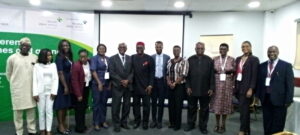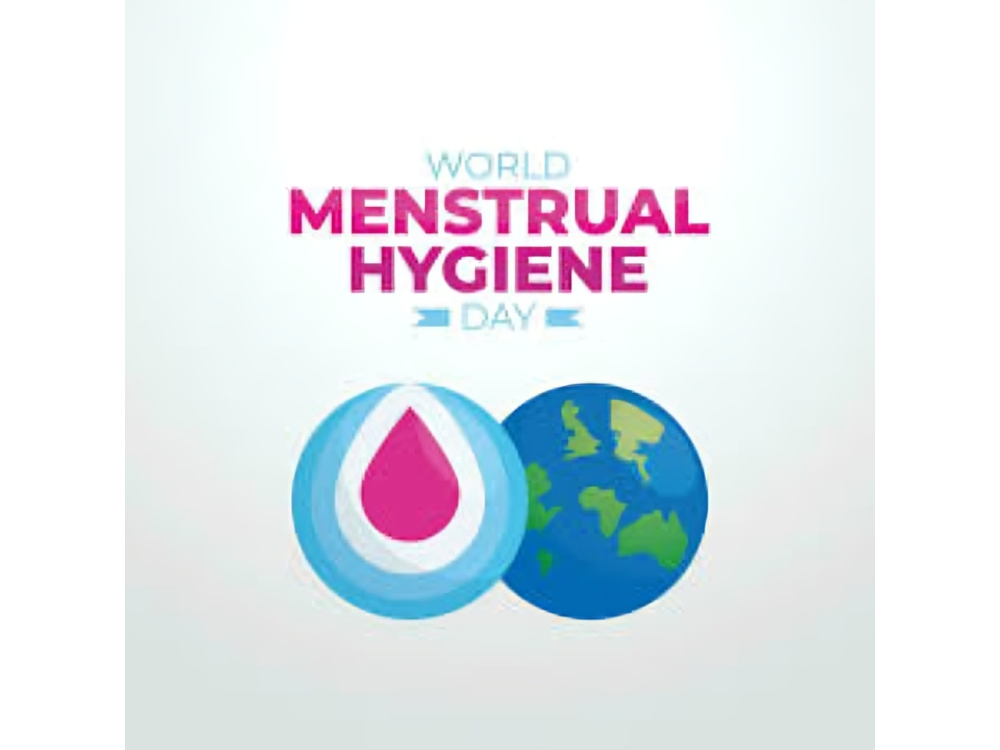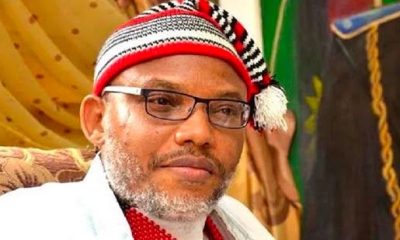Health
Ex-minister seeks implementation of legislations, policies for quality healthcare service

A Former Minister of Health, Prof. Onyebuchi Chukwu, has called for the implementation of various healthcare legislations and policies to improve the quality of the nation’s healthcare services.
Chukwu made the call at the 2023 Annual Conference of the Society for Quality Healthcare in Nigeria (SQHN) on Wednesday in Lagos.
The News Agency of Nigeria (NAN) reports that the conference had the theme: “Regulatory Oversight of Healthcare Quality in West Africa”.
He said that there are series of formulated healthcare legislations and policies in the past that had not been implemented in Nigeria.
He decried the low healthcare quality regulatory capacity in most West African countries.
According to him, the regulatory agencies on quality healthcare services must be well funded and enabled by appropriate legislation to be able to function better.
The former health minister noted that implementating health policies and legislations are key to ensuring quality of the nation’s healthcare service delivery.
“To maintain quality healthcare service that meets international standard requires not only legislations, policies and institutions, but the will for implementation and enforcement.
“Building a regulatory capacity must be deliberate, diligent and sustainable.
“The Federal Government of Nigeria enacted the National Health Act in 2014 to address standardisation and quality assurance of healthcare service.
“Section 9 provides for the establishment of a National Tertiary Health Institutions Standards Committee while Sections 13 and 14 provides for a Certificate of Standards to be issued by or obtained from the appropriate body of government where the facility is regulated.
“To date, this committee is yet to be constituted and so those sections as they affect the tertiary health institutions are yet to be operationalised.
“Presently, medical tourism is now trending; Ghana going to India, Egypt or Singapore and vice versa.
“If, Nigeria does not improve and strengthen its health system, it will discourage medical tourism into the country,” he said.
Dr Ajibike Oyewumi, a Quality Improvement Specialist, International Finance Corporation (IFC), said there was need to review the content of the services of healthcare providers with the view to improving them through accreditation.
Oyewumi said that both private and public health facilities should be opened and submitted for accreditation, saying that accreditation remained the means to influence quality in the healthcare system.
According to her, accreditation not only creates room for improvement, but also paves the way for quality services and enhances productivity.
Oyewumi emphasised the need for quality healthcare specialists and managers to be more proactive in encouraging healthcare providers to improve the quality of their service delivery and be open for accreditation.
“Our role is to motivate, encourage and support health facilities to achieve quality in their service delivery.
“This can be better achieved through collaboration, partnership and training for the medical personnel and provision of standardised medical equipment,” Oyewumi said.
Dr Endurance Uwadiae, a Quality Improvement Specialist, called for adequate collaboration among healthcare quality regulatory bodies, the healthcare providers and the end-users – patients.
According to him, collaboration is necessary to ensure accountability and transparency in the whole process.
Earlier, Dr Wole Abiodun-Wright, President of the Society, said that SQHN was committed to ensuring improved healthcare services that meet international standard are rendered in health facilities at all levels across the country.
In his welcome address, Abiodun-Wright said that SQHN worked with health facilities to improve quality and safety of their healthcare services through education, collaboration, training and accreditation.
”We believe that if, the country drives quality seriously and sustains it, every other thing will fall in place.
“But, if the country is unable to tackle quality due to poor funding, all other challenges confronting the health sector will still be there.
“Hence, the need for adequate funding of the health facilities,” he said.
The conference featured a panel discussion in which experts in quality healthcare management identified the challenges, benefits, impacts and way forward to achieving a sustainable quality healthcare service in Nigeria.
Health
Stakeholders Call for Better Menstrual Hygiene To Boost Health

Stakeholders have stressed the need for increased awareness and improved practices around menstrual hygiene, particularly to support better health outcomes and dignity for girls in underserved communities.
They made the call on Wednesday in Abuja ahead of the 2025 Menstrual Hygiene Day, commemorated globally every May 28 to address inequalities in menstrual health and hygiene.
The event was organised by Tabitha Cumi Foundation (TCF) under its Always Keeping Girls in School (AKGIS) project, with support from Charities Aid Foundation (CAF America).
Mrs Tayo Erinle, Executive Director of TCF, said menstrual hygiene remained a critical yet often overlooked aspect of reproductive health, especially among adolescent girls.
“Many girls live in households where no one provides sanitary pads or pays attention to that part of their lives.
“It happens monthly, and every girl deserves dignity and support,” she said.
Erinle added that more than 1,600 marginalised girls across 32 junior secondary schools in the FCT, Lagos, and Benue states were empowered through puberty education and menstrual hygiene management under the AKGIS project.
She said beneficiaries also received a one-year supply of Always sanitary pads and emergency kits.
“The project has boosted the girls’ confidence.
“Menstruation was once shrouded in secrecy, stigma, and confusion for many. Now, with access to correct information and education, they feel empowered,” she added.
Dr Adedolapo Fasawe, Mandate Secretary for the Health Services and Environment Secretariat, emphasised the importance of educating youths on reproductive health.
Represented by Dr Ruqayya Wamakko, Executive Secretary of the FCT Primary Health Care Board, she called for more sensitisation efforts to encourage young people to use health services in primary health centres.
“We give health talks, visit schools, form school clubs, and teach students how to care for themselves, maintain personal and menstrual hygiene, and stay safe,” she noted.
Mrs Nwakonye Onyirechi, Assistant Chief Investigative Officer in the Women and Children Department of the National Human Rights Commission (NHRC), reiterated the commission’s commitment to protecting the rights of the girl child.
“We go to schools to sensitise girls to their rights and encourage them to speak up when their rights are violated,” she said.
Dr Safiya Tamanuwa, Deputy Director of the Placement and Gender Unit at the Universal Basic Education Commission (UBEC), commended TCF for its support toward improving the health and well-being of schoolgirls.
Highlights of the event included the distribution of sanitary pads and kits, a literary presentation, and expert-led health talks.(NAN)
Health
Group urges Nigerians to embrace healthy habits to prevent diseases

The Society of Lifestyle Medicine of Nigeria (SOLONg) has advised Nigerians to embrace healthy preventive lifestyle habits to prevent the root causes of chronic and lifestyle-related diseases.
The President of SOLONg, Dr Moyosore Makinde, gave the advice in an interview in commemoration of the “Global Lifestyle Medicine Week” on Tuesday in Lagos.
NAN reports that the Global Lifestyle Medicine Week, taking place from May 18 to May 24, 2025, has the theme “Celebrating Healthy Habits: Inspire Change with D.
R.E.A.M.S.”Makinde, also an International Board-certified Lifestyle Medicine Physician, said the week was dedicated to raising awareness about the transformative power of lifestyle medicine in improving health outcomes and reducing the burden of chronic diseases worldwide.
According to her, lifestyle medicine empowers people to live healthier, happier and longer lives.
She explained that the D.R.E.A.M.S. acronym highlighted the six key pillars of lifestyle medicine that guide individuals toward healthier lives namely: Predominantly plant-based Diets, positive Relationships or social connections, Exercise, Avoidance of toxic substances, Mental wellness and stress management, and restorative Sleep.
She said that these pillars had been proven by scientific research to not only manage and prevent chronic diseases like coronary heart disease, diabetes, dementia and Alzheimer’s but also to promote a more sustainable and harmonious relationship with ourselves and with our planet.
Makinde added that it contributed to planetary health and the stability of our ecosystem.
“SOLONg is proud to announce its participation in Global Lifestyle Medicine Week, taking place from May 18 to May 24, 2025.
“Scientific studies, including numerous randomised clinical trials and longitudinal studies, have consistently shown the remarkable benefits of lifestyle interventions in reducing the incidence of chronic conditions.
“Additionally, these healthy habits play a pivotal role in strengthening resilience against infectious diseases.
“The ongoing impact of several pandemics has underscored the importance of adopting healthy behaviours, as poor lifestyle choices have been associated with worse disease severity and slower recovery times,” she said.
Contributing, the General Secretary of SOLONg, Dr Chika Anozie, said that Global Lifestyle Medicine Week aimed to foster a community of like-minded individuals and healthcare professionals committed to lifestyle medicine.
Anozie, also a Family Physician, said that SOLONg would organise various activities to mark the week, including a Webinars and educational workshops on lifestyle medicine topics.
She added that there would be courtesy visits and community outreach programmes promoting healthy habits, as well as social media campaigns sharing lifestyle medicine tips and resources.
“As we observe Global Lifestyle Medicine Week, it is clear that the need for Lifestyle Medicine is greater than ever.
“This is a clarion call for the government to create policies that promote healthy lifestyle practices while restricting behaviours that contribute to disease.
“We urge medical institutions to prioritise the accreditation of Lifestyle Medicine programs at both undergraduate and postgraduate levels.
“It is equally important that health professionals receive the proper training to effectively communicate these life-saving messages to the public.
“The Society encourages individuals to embrace the principles of healthy living, which are not only lifechanging but also long-lasting,” she said.(NAN)
Health
NAFDAC Clarifies Sachet Alcohol Ban Timeline

The National Agency for Food and Drug Administration and Control (NAFDAC) has clarified its stance regarding the nationwide ban on sachet alcohol.
Mr Kenneth Azikiwe, Director of the FCT Directorate of the agency, in an interview on Monday in Abuja that the temporary lifting of the ban was only valid until Dec.
31, 2025.He emphasised that the recent ministerial lifting of the ban was not permanent and urged the public to disregard misinformation suggesting that the government had permanently lifted the restriction.
“There is a ministerial lifting on the ban of sachet alcohol, but it is only temporary and will be reviewed by Dec. 31, 2025.
“After this date, the full enforcement of the ban will commence.
“The minister granted this temporary relief to allow manufacturers and regulators time to collaborate and ensure a more structured and effective implementation of the ban,” Azikiwe stated.”
He highlighted NAFDAC’s ongoing efforts to sensitise the public across the country, noting that awareness campaigns had reached every state.
“We have sensitised distributors, and we’ve emphasised that alcohol should not be sold to individuals under the age of 18, which is also clearly indicated on product labels,” he added.
Azikiwe also commended the Distillers and Beverages Association of Nigeria (DIBAN) for supporting the awareness drive.
He reassured the public that NAFDAC remained fully committed to regulating alcohol consumption and reiterated that sachet alcohol products containing less than 200 milliliters would be phased out after Dec. 2025.(NAN)





















